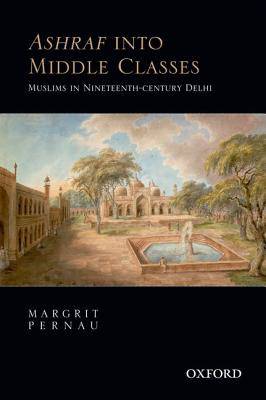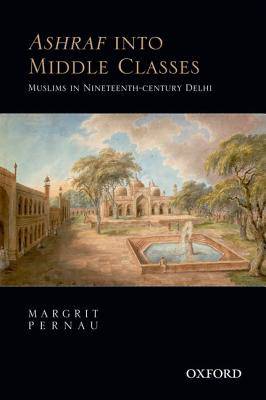
Bedankt voor het vertrouwen het afgelopen jaar! Om jou te bedanken bieden we GRATIS verzending aan op alles gedurende de hele maand januari.
- Afhalen na 1 uur in een winkel met voorraad
- Gratis thuislevering in België
- Ruim aanbod met 7 miljoen producten
Bedankt voor het vertrouwen het afgelopen jaar! Om jou te bedanken bieden we GRATIS verzending aan op alles gedurende de hele maand januari.
- Afhalen na 1 uur in een winkel met voorraad
- Gratis thuislevering in België
- Ruim aanbod met 7 miljoen producten
Zoeken
€ 53,45
+ 106 punten
Omschrijving
Nineteenth-century Delhi was marked by a curious mixture of political upheaval and cultural resurgence. Drawing on a wide variety of little-known sources in Urdu and Persian, apart from the more conventional British records, this book provides a revelatory and vivid narrative of Muslims in the period covering the British conquest in 1803 to the end of the Khilafat movement in 1922. Moving away from the tendency of studies on Muslims to focus on religious identity, this book allows us to historicize Islam and socially contextualize its many manifestations. Treating identities as inherently dynamic and ever changing, Pernau argues that religious identity became central for Muslims only in the last third of the nineteenth century, and this was closely linked with the creation of a middle class whose members described themselves as ashraf, or "men from a good family." The new concept of respectability or sharafat on which the middle class was based allowed it to, at once, draw a distance from the old nobility, bring the learned section of the community closer to the businessmen, and demarcate it sharply from the subalterns. The book focuses on the agency of historical actors--their perceptions and memories--to help us understand what it means to be a "Muslim" as well as fathom the varied interactions between identities defined by religion, language, geography, and gender.
Specificaties
Betrokkenen
- Auteur(s):
- Uitgeverij:
Inhoud
- Aantal bladzijden:
- 544
- Taal:
- Engels
Eigenschappen
- Productcode (EAN):
- 9780198092285
- Verschijningsdatum:
- 31/08/2013
- Uitvoering:
- Hardcover
- Formaat:
- Genaaid
- Afmetingen:
- 149 mm x 229 mm
- Gewicht:
- 684 g

Alleen bij Standaard Boekhandel
+ 106 punten op je klantenkaart van Standaard Boekhandel
Beoordelingen
We publiceren alleen reviews die voldoen aan de voorwaarden voor reviews. Bekijk onze voorwaarden voor reviews.











